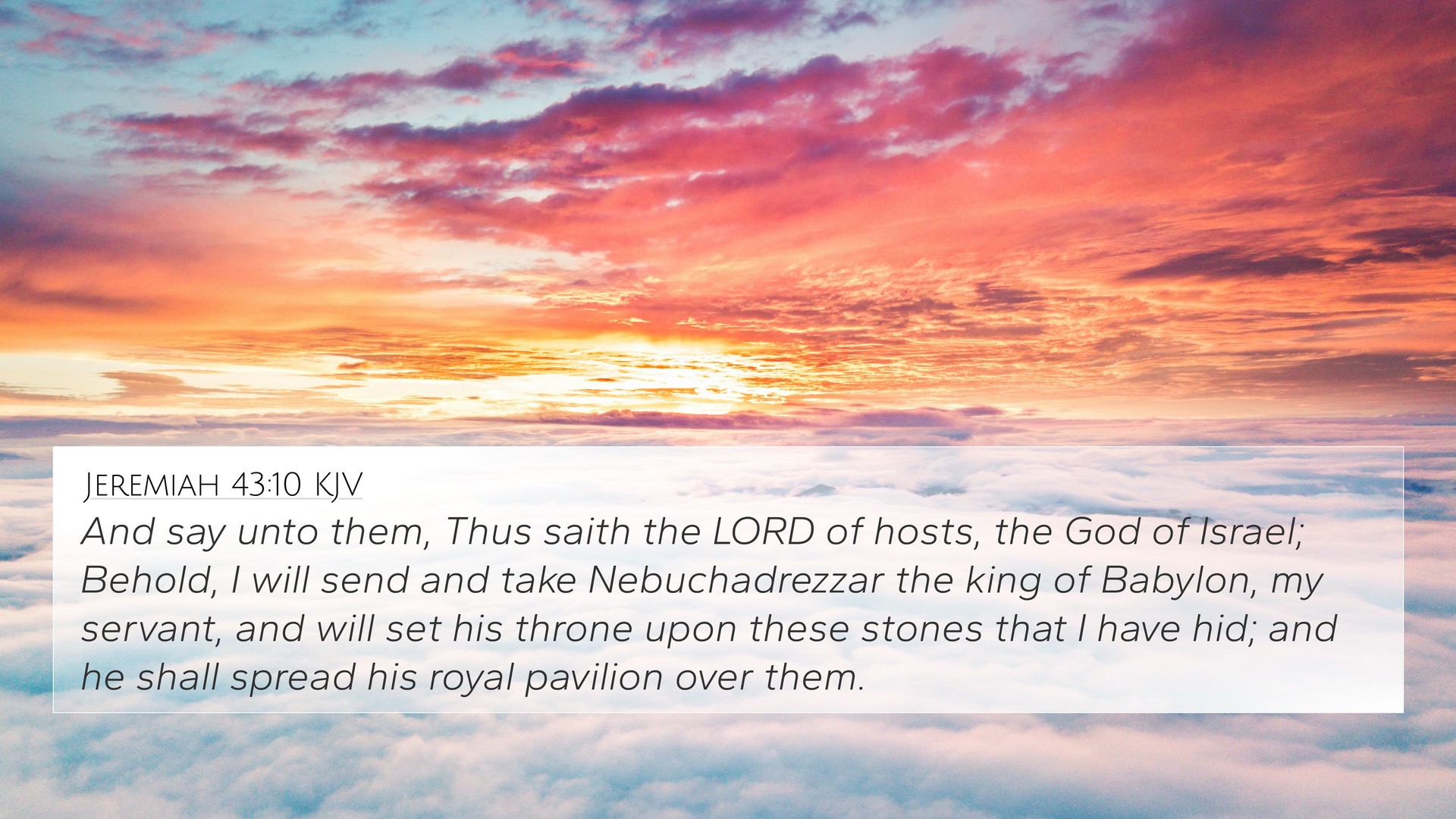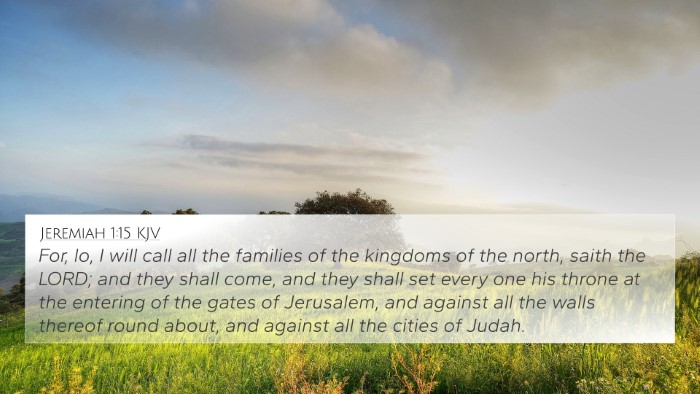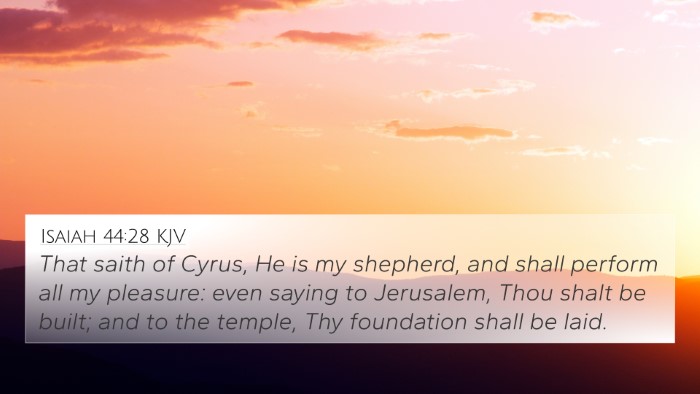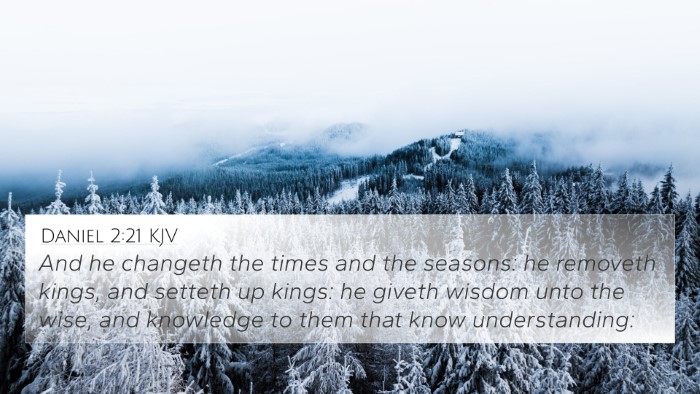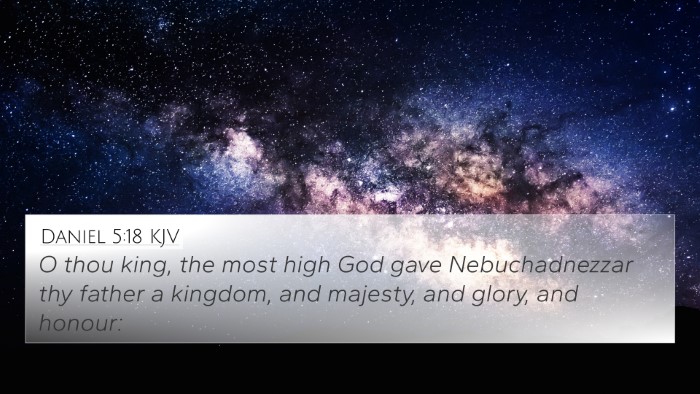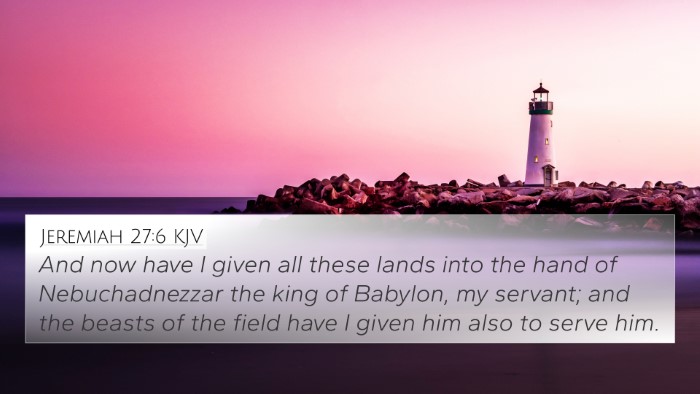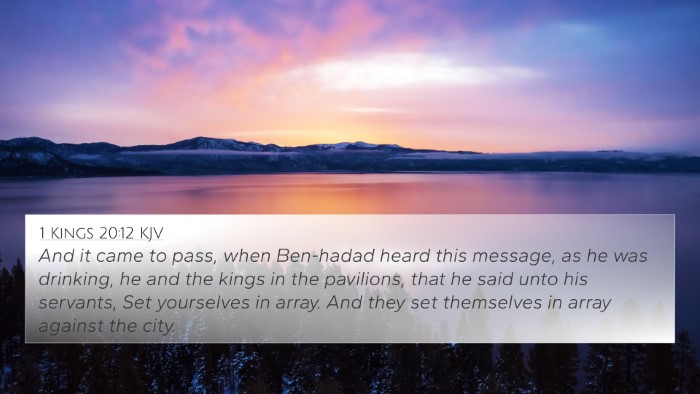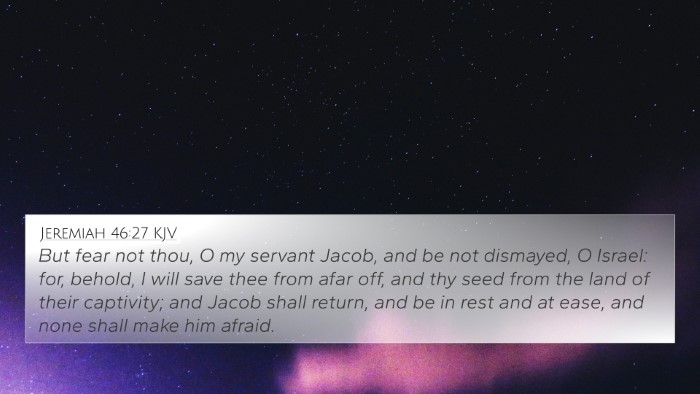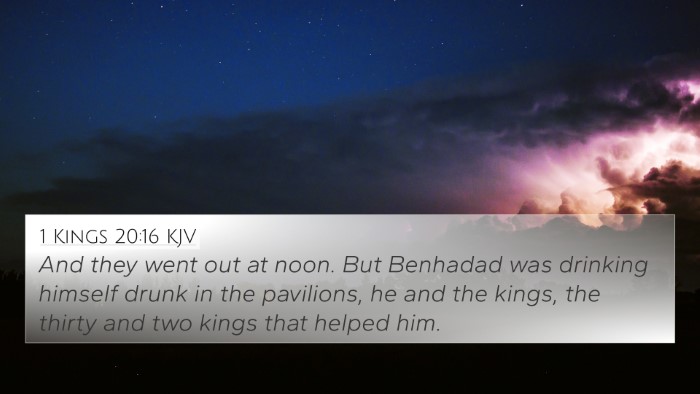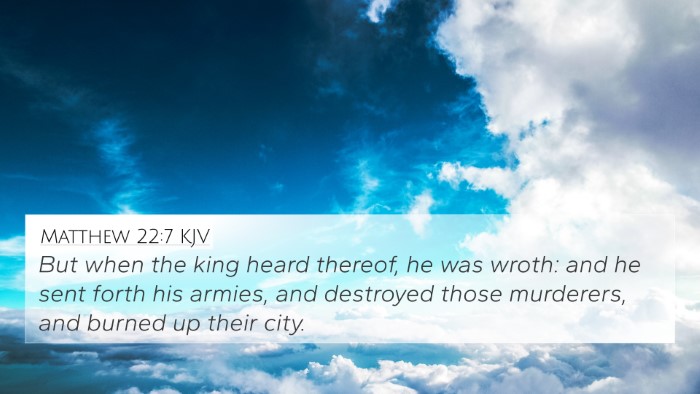Understanding Jeremiah 43:10
Verse Context: Jeremiah 43:10 states, “And say unto them, Thus saith the Lord of hosts, the God of Israel; Behold, I will send and take Nebuchadnezzar the king of Babylon, my servant, and will set his throne upon these stones that I have hid; and he shall spread his royal pavilion over them.” This passage reveals God’s sovereignty and His use of earthly rulers to fulfill His divine plans.
Verse Analysis
The verse is rich in meaning, showcasing several theological themes. Below are key insights derived from respected public domain commentaries to enhance understanding:
The Sovereignty of God
Matthew Henry's Commentary emphasizes God's authority as the supreme ruler over nations. He articulates that the verse illustrates how God employs King Nebuchadnezzar, described as "my servant," to execute His will. This act demonstrates that even those who oppose God's people can be instruments of His purposes.
Judgment and Preservation
Albert Barnes' Notes on the Bible notes that God’s message is both a warning and a promise. It indicates impending judgment upon those who rebel against Him, while simultaneously promising protection for those who remain faithful. This duality is essential in understanding God’s nature as both just and merciful.
The Symbolism of Stones
Adam Clarke's Commentary discusses the “stones” mentioned in the passage. These stones are symbolic, implying God’s covenant and chosen people. Setting the king’s throne upon them signifies the establishment of authority over God's chosen site, indicating that God's kingdom will prevail through earthly authority.
Cross-References and Thematic Connections
Several other biblical passages resonate with the themes found in Jeremiah 43:10. Below are some key cross-references that illuminate the verse's message:
- Isaiah 45:1: "Thus saith the Lord to his anointed, to Cyrus..." - Parallel of God choosing rulers for His purposes.
- Daniel 2:21: "And he changeth the times and the seasons: he removeth kings, and setteth up kings..." - Affirming God's sovereignty over rulers.
- Romans 13:1: "Let every soul be subject unto the higher powers..." - Reinforcement that all authority is established by God.
- Jeremiah 25:9: "Behold, I will send and take all the families of the north..." - Foretelling Babylon's role in God's plans.
- Proverbs 21:1: "The king's heart is in the hand of the Lord..." - Insight into God's control over the hearts of rulers.
- Psalms 75:7: "But God is the judge: he putteth down one, and setteth up another." - God's ultimate authority over nations and leaders.
- Acts 4:25-28: Fulfillment of prophetic scriptures regarding the nations and their leaders aligning against God’s anointed.
- Revelation 17:17: "For God hath put in their hearts to fulfill his will..." - Acknowledgment of divine orchestration in the affairs of men.
- Isaiah 13:17-19: God's plan for Babylon's destruction reinforces His control over historic empires.
Connecting Themes
The themes found in Jeremiah 43:10 resonate across numerous sections of scripture. By understanding God's sovereignty, judgment, and mercy, readers can draw deeper connections between both Old and New Testament narratives. Here are some ways to utilize these insights:
- Bible Cross-Reference Guide: Utilization of topped cross-reference tools helps in linking verses thematically.
- Identifying Connections: Exploring how God's use of earthly rulers continues into the New Testament with leaders like Pilate and Caesar.
- Cross-Referencing Biblical Texts: Systematically studying parallels in prophetic books to the Gospels enhances the overall biblical narrative.
Conclusion
In Jeremiah 43:10, God communicates profound truths regarding His sovereignty over nations and leaders. By harnessing tools for Bible cross-referencing, believers can navigate the scriptures for deeper understanding, thereby establishing connections between verses and cultivating a richer knowledge of God’s redemptive history.
